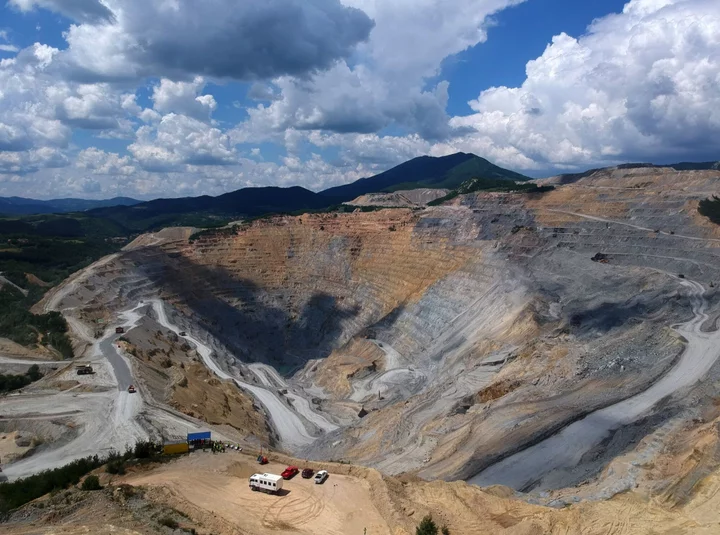China’s Zijin Mining Group Co. is developing plans to expand its copper mine in eastern Serbia due to demand for the metal considered vital to the global energy transition — an effort that could cost billions of dollars.
The company opened the Cukaru Peki copper and gold mine almost two years ago, with a $678 million investment allowing it to reach reserves a few hundred meters deep. Now it wants to drill down almost 2 kilometers (1.25 miles) to make the most of assets acquired in a takeover spree.
“These are vast reserves, which require additional infrastructure, additional investment of around $3.5 billion to $3.8 billion,” said Branko Rakocevic, the top Serbian official at the mine, whom the Chinese company authorized to speak with reporters.
Across the globe, companies and governments are racing to produce materials considered key to the shift toward a greener economy. Copper in particular is used in wind turbines, power grids and electric vehicles. China is the world’s top-supplier of so-called critical minerals, but the European Union and US are seeking to boost domestic supplies to ensure that they don’t fall further behind in the transition.
Read more: Why the Fight for ‘Critical Minerals’ Is Heating Up: QuickTake
Serbia, a candidate for EU membership, has embraced foreign investors including China as it looks to revitalize an ailing sector of its economy. Australia-based BHP Group, the world’s biggest mining company, is also looking more closely, signing an agreement earlier this year to explore for new copper deposits in the country.
Cukaru Peki is located in the town of Bor, where copper, gold and silver have been mined for over a century. The mine’s lower zone, at depths of more than 460 meters (1,508 feet), is believed to hold 2.2 million tons of copper, more than in the upper zone. Its gold content is thought to be lower at the deeper depths.
The upper zone may be exhausted of its deposits around 2034, while deeper operations could start in 7 to 10 years, according to Rakocevic. Zijin’s long-term plans for the site include building roads, and expanding power supply and flotation facilities, he said.
Zijin’s Expansion
Zijin bought Serbia’s sole copper and gold complex in 2018, when the government auctioned off the debt-laden business in an effort to save thousands of jobs in an impoverished mining region. Following a string of takeovers, the Chinese company developed full control of what is now Cukaru Peki.
The acquisition — and further investments to expand mines in Congo and Tibet — are helping to transform Zijin into one of the world’s largest copper miners, leapfrogging western producers like Rio Tinto, Anglo American and Antofagasta. By 2025, it expects to produce about 1.2 million tons of copper, a six-fold increase over levels seen in 2017.
Zijin now runs two units in Serbia. One produces copper cathodes, gold, silver and sulfuric acid at facilities co-owned with the government. The other, Serbia Zijin Mining — which operates the Cukaru Peki mine — exports copper concentrate to China, Canada, Bulgaria, Spain and Korea.
The companies have been among Serbia’s top exporters for the last two years, riding a wave of demand for metals. Benchmark copper futures soared earlier this year, though prices have cooled in recent months, largely over concerns about the health of China’s economy.
“Still, copper is in demand always and everywhere” which justifies the long-term investment, Rakocevic said. “The market is stable enough. Prices declined from last year, but we don’t expect much volatility.”
--With assistance from Mark Burton.

